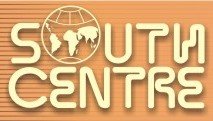Read the Press Release at http://www.southcentre.org/info/2008Apr_Press_Release_UNCTAD_XII.pdf
Dr. Yash Tandon, Executive Director of the South Centre delivered his statement "Towards National and Collective Self Reliance of the South" at the General Debate of the Twelfth Session of the United Nations Conference on Trade and Development (UNCTAD-XII) on 23rd April at Accra, Ghana.
According to Dr. Tandon, "there are areas of development in the South that give reasons to celebrate. The independence shown by some countries in Latin America from dependence in the North is an example of this positive development. The growth of the economies of certain countries in Asia whose increasing so- called “sovereign wealth” is now the source of bailing out distressed banks in the North is a sign of changing times".
Whilst we have a lot to celebrate, we still confront major challenges.
According to Dr. Tandon, "at the systemic level there are still many serious and formidable obstacles to change towards a more equitable and just world that needs urgent collective action by the global community. Africa looks more mired than the rest of the South in the quagmire of the past, but there are signs of growth in Africa too".
Dr. Tandon listed six major challenges where UNCTAD should direct its energies and future efforts. The challenges include:
1 Recognise that the three pillars set by the UN reform process -- security, development and human rights -- are interdependent; none can be sacrificed for the others.
2. Recognise that MDGs are not simply a statistical game of numbers, or simply one of finding money. There are difficult and complex political issues underlying them. Statistization and monetization of MDGs mask /mystify systemic and structural malaise behind these issues, and divert attention from them. Recognise that what led to Millennium Summit in 2000 and MDGs was the development failure in 1990s. That still remains the case.
3. Recognise that the Washington Consensus is dead, and therefore there is need for fresh thinking on development, financial architecture, and climate change.
4. Recognise that development is self-defined; the North cannot define it for the South.
5. Recognise that aid and charity are the wrong way towards addressing systemic and developmental issues, especially of Africa. UNCTAD must lead the way towards finding ways and means of exiting from aid dependence for the countries of the South.
6. Recognise that the UN, imperfect as it is, is nonetheless the only truly global inter governmental system we have, and the need therefore to work through it. But understand that power and access to knowledge are the key to hard-nosed negotiations.
However, difficult as they may seem, UNCTAD should be bold enough to face them as the price for not taking action is something developing countries can ill-afford. And in this effort, UNCTAD will find in the South Centre a willing ally. The South Centre makes up for its woefully limited resources with hard work and independent conceptual thinking, and enjoys the confidence of the countries of the South.
Read the complete statement at:
http://www.un.org/webcast/unctad/xii/pdf/south_centre_en.pdf
According to Dr. Tandon, "there are areas of development in the South that give reasons to celebrate. The independence shown by some countries in Latin America from dependence in the North is an example of this positive development. The growth of the economies of certain countries in Asia whose increasing so- called “sovereign wealth” is now the source of bailing out distressed banks in the North is a sign of changing times".
Whilst we have a lot to celebrate, we still confront major challenges.
According to Dr. Tandon, "at the systemic level there are still many serious and formidable obstacles to change towards a more equitable and just world that needs urgent collective action by the global community. Africa looks more mired than the rest of the South in the quagmire of the past, but there are signs of growth in Africa too".
Dr. Tandon listed six major challenges where UNCTAD should direct its energies and future efforts. The challenges include:
1 Recognise that the three pillars set by the UN reform process -- security, development and human rights -- are interdependent; none can be sacrificed for the others.
2. Recognise that MDGs are not simply a statistical game of numbers, or simply one of finding money. There are difficult and complex political issues underlying them. Statistization and monetization of MDGs mask /mystify systemic and structural malaise behind these issues, and divert attention from them. Recognise that what led to Millennium Summit in 2000 and MDGs was the development failure in 1990s. That still remains the case.
3. Recognise that the Washington Consensus is dead, and therefore there is need for fresh thinking on development, financial architecture, and climate change.
4. Recognise that development is self-defined; the North cannot define it for the South.
5. Recognise that aid and charity are the wrong way towards addressing systemic and developmental issues, especially of Africa. UNCTAD must lead the way towards finding ways and means of exiting from aid dependence for the countries of the South.
6. Recognise that the UN, imperfect as it is, is nonetheless the only truly global inter governmental system we have, and the need therefore to work through it. But understand that power and access to knowledge are the key to hard-nosed negotiations.
However, difficult as they may seem, UNCTAD should be bold enough to face them as the price for not taking action is something developing countries can ill-afford. And in this effort, UNCTAD will find in the South Centre a willing ally. The South Centre makes up for its woefully limited resources with hard work and independent conceptual thinking, and enjoys the confidence of the countries of the South.
Read the complete statement at:
http://www.un.org/webcast/unctad/xii/pdf/south_centre_en.pdf
or contact: Vikas Nath, Head - Media and Communication, South Centre at nath@southcentre.org

0 comments:
Post a Comment